Movies
Fantasia 2021 Interview: ‘The Sadness’ Writer/Director Rob Jabbaz
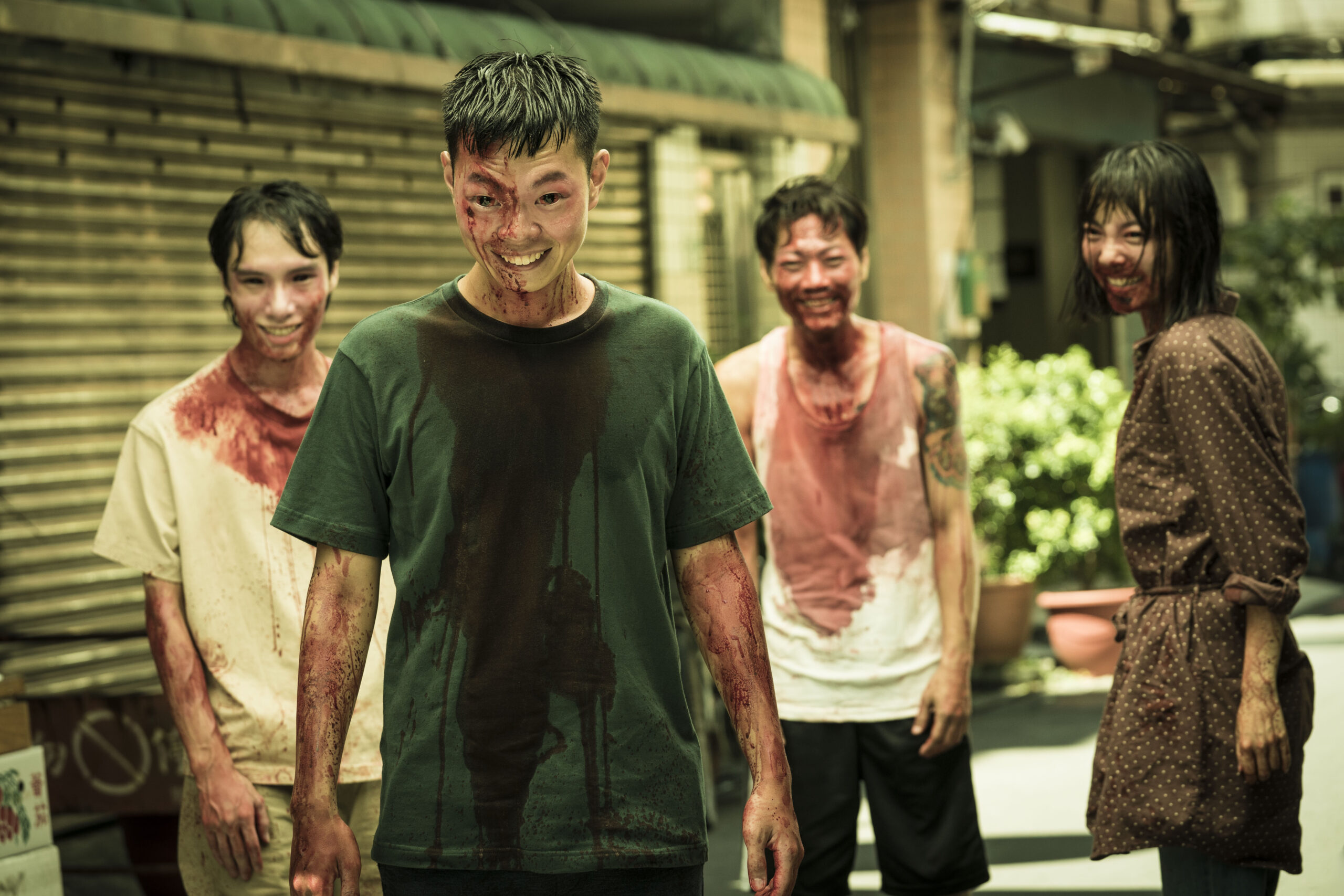
The Sadness — which played as part of Fantasia Fest 2021 — might be my favorite film of the year (so far). As I was watching it, I knew I had to sit down with writer/director/editor/fellow Canadian Rob Jabbaz to discuss the absolute madness of The Sadness.
Rob — who took home the New Flesh Award at Fantasia (for best first feature) — graciously took the time to talk with me about zombies, extreme horror, and how the film came into being.
Kelly McNeely: So when I read the description of The Sadness, it made me think of Garth Ennis’ Crossed… Was that a point of inspiration for you? Can you talk a little bit about where this movie came from, and where this idea came from?
Rob Jabbaz: Yeah, sure. I mean, Crossed was a big inspiration. But it didn’t start from there. It was more kind of like, the pandemic happened, and then my boss told me that I should write a movie, like, “I’ll finance a movie if you do it right now and we can get it out in like, six months”. And I was like, Okay, what do you want to do?
He was like, it has to be about a pandemic, or whatever. A zombie sort of thing is what he wanted. He really was dead set on that. You know, there’s all these shows on Netflix, like Black Summer and stuff. And it’s just like, why do I need an alternative to The Walking Dead? Why are there like four alternatives to that? it doesn’t make any sense to me.
I guess, you know, like, “oh, wow, I wonder what’s happening, I wonder if the exact same thing is happening in another part of the world”. Maybe it’s really interesting. I don’t know, maybe it’s very good, multi-layered and all that stuff. But I wanted something that would take it to the next level. And I started just kind of looking at stuff, and I read Crossed back when it first came out. And I was like, oh, maybe I’ll look at Crossed again. So I did. And I thought it was cool. Because it added that sort of extra level of like a threat.
And really, if you think about it, what it actually is, is malice or intentional cruelty, and enjoying hurting people. Because the analogy that I keep using when I give interviews is, like, if you get attacked by an animal and you lose an eye, you can kind of get over that. But if you get jumped in an alley, and some guy is laughing while he carves your face up with a with a box cutter, you know, when you look in the mirror, you know, five years from then, it’s gonna be a lot harder to kind of deal with, you know, and so that’s the difference malice makes, right? So I was like, that’s kind of interesting.
But the problem with Crossed is that they really just are zombies, except that they fuck people. And it’s like, you know, that’s sort of, almost there. And another thing too, is that Crossed really is kind of like The Walking Dead thing where it’s about the survivors. And what it ultimately is, is about how you have to become a shitty person to deal in this shitty world. I read all of them, and that really is what it all boils down to. Is that like the shittier you are, the more equipped you are to deal with this world, this unspeakably ghastly world that is the world of Crossed. And that’s what that’s about.
But with mine, I was like, okay, well, what’s mine about with a capital A, and I was like, well, it’s going to be about people who don’t have lives that they feel happy with. And they feel kind of disconnected and they don’t have meaningful relationships, and they’re not happy with their jobs and their lives and their decisions. And they don’t know how to get any kind of release or escape from that, and every day is just kind of like living this life of fear and anger. And this cauldron of roiling rage in your mind, and then one day, there’s a virus that just kind of allows that all to kind of be okay and all of a sudden you have purpose in your life. And the purpose is entirely connected to that pent up frustration and rage and, you know, sexual inadequacy and all this kind of stuff. So, I was like, okay, that’s cool. Let’s do a movie kind of like that. But like, it’ll be kind of like a virus that does that, or something.
The virus thing was way in the background, like, I didn’t really even think that wasn’t really a big deal. You know, it’s just kind of like, okay, the means to an end is that it’s a virus, you know, maybe it could be aliens, or it could be a supernatural reason, who cares. But the point is, we just get to a place where we can have people doing these things to other people. And unlike Crossed, be able to, like — I mean, they do talk in Crossed, they occasionally say a little dirty thing here and there, and it’s cool — but I wanted them to express themselves a lot more, and to really become characters. And I think that definitely happens, you know, once in a while in that comic, but I just did it my way. And for me, it was really more about the Revenge of the Nerds aspect. That’s kind of what made it interesting for me to write.
And also, I should also add that there’s — I’m not sure how well versed you are in science fiction literature — but there’s a short story by a woman named Raccoona Sheldon — I think her real name is Alice Sheldon, but Raccoona is just the way cooler name. We’ll just call her by that name that she wrote that story under — but the story is called The Screwfly Solution. And — did you ever see that?
Kelly McNeely: I know that they did a Masters of Horror episode on it, I’ve seen that.
Rob Jabbaz: Okay. Well, you know, I’ll tell you this, that adaptation is very, very close. It captures the… how do I say this. Like, in terms of it capturing exactly what the thing is about, it’s perfect, but in terms of like the tone — that felt very, you know, very made-for-TV. Elliott Gould’s in it, but he’s playing second string to Jason Priestley. And you’re like, what the hell’s going on here? And that actress they got to play the daughter is terrible. And I mean, it’s just such a shame, because that’s such a great story. It’s written kind of like Dracula, where it’s all a collection of letters. And it’s really good — I recommend it, it’s actually on YouTube as an audiobook, you can just lay there and listen to it in like three hours or whatever.
But anyways, the point that I’m trying to make is that they brought up this idea of male sex drive and aggression being almost exactly the same thing. Just like a switch. And so I started imagining inside of my brain, there’s like these two little neurons that are so close to each other, and all it takes is for a little virus to grow on there and create a little connection between the two and then that’s all it takes. And then I thought, wow, that’s great. Let’s explain it that way. And let’s have a big, long expository speech at the end that’s talking all about that.
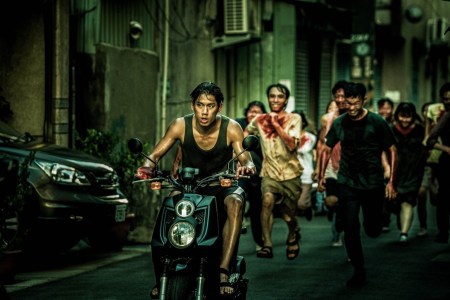
Kelly McNeely: So you’re from Canada, how did you end up making an extreme horror film in Taiwan?
Rob Jabbaz: I just happened to be here at the time. I kind of just came to Taiwan, because I guess I was young, I was like 25. And I just thought, oh, it’s Taiwan, I’ve got some friends who went there, and they were doing graffiti and stuff, and I was interested in that. That was kind of what I did when I was younger, even as late as 25, I was really into graffiti. And then I came to Taiwan because I just thought it would be cool to kind of just get up in another city and maybe buy a camera and film some of the stuff. You make very vague plans when you’re young. And then and then I went and I did it, and then I realized that I could work in Taiwan for a lot fewer hours than I needed to to live. I could work 18 hours a week or something. So I was like, cool, what am I gonna do with all this free time? I tried to be proactive about my future. I had an interest in animation and stuff before but I started to really kind of get obsessive about it, and started to just teach myself — like with YouTube and stuff — how to use After Effects and Cinema 4D and whatnot. And then I started getting work doing that, I was able to transition into doing commercials.
In a way, I was sort of like a big fish in a little pond, because the skill set that I developed was a lot better than a lot of other people, but like within a certain sort of price range. And then you know, time goes on, and then one of the guys I was doing a commercial for invited me to dinner or lunch or something. And the next thing you know, I’m talking with the guy who ended up becoming my financer and my boss, Jeff Huang.
And then kind of rewind back to the beginning of this, the guy says, look, the Coronavirus is here, let’s go make a movie. Hollywood’s closed, we’re gonna have no competition at all in the winter. So let’s just try to make a movie and put it out and see how it does. I think that he was more interested in just doing a cool movie. The motivation to profit from a movie wasn’t really part of the decision. I think he pretty much was just like, well, you know, we’ll flip a coin and maybe we’ll make some money off of this. But the most important thing is just to kind of like, make a movie and get it out there.
I mean, these guys who are wealthy, like, God bless him, you know, they want to go to space, or they want to make a movie or, you know what I’m saying? Maybe as they get older, they start to think about their legacy, or they start to think about their hobbies more or their dreams. So whatever it was, you know, God bless Jeff for just giving me the time of day and then letting me make The Sadness, which seems to be resonating with a lot of people these days. I’m getting a lot of people like you hollering at me to do interviews, telling me that they really liked it and stuff. So it’s nice. It’s mostly a relief to be honest. Just really like an affirmation of my perceived ability, you know, just like, oh, I can do it, you know?

Kelly McNeely: The zombie genre — as you kind of mentioned earlier — it can be very tired, and overdone. I think that it can also get to be like too easy at times, which is one of the things that I really loved about The Sadness is, calling it a zombie film — which I’ve seen a couple places do — almost seems like a disservice to it, because it’s not a zombie film. It’s something totally different from that.
Rob Jabbaz: I’m just kind of going with that in terms of marketing, in terms of, like, easy classification. Like, Rue Morgue, they wrote that it’s “the most violent and depraved zombie movie ever made”. The marketing aspect of it, just calling it a zombie movie, I guess it just helps people to kind of know what they’re getting into. And also it is even nice too, to kind of, you know, after the fact, in the reviews, actually have the opportunity to be like, this is not a zombie movie. And to kind of say exactly what you said. But I actually cut you off, so please continue with what you were saying.
Kelly McNeely: No, you’ve answered it, that’s perfect. That’s kind of what I wanted to ask, in terms of like, how do you feel about having that classification of having it as a zombie film? But I think that that’s a great way to explain it. It kind of draws people in, but then when they watch it, it’s like, oh, shit, this is very, very different.
Rob Jabbaz: This whole experience has been a big learning experience. And like, one of the things that I’ve learned is that you can never underestimate the laziness of media buyers, and also — no offense — but the press. The press also is very lazy. And they want to just kind of slot the new information into the existing structure that’s already there. You know? Shark movie, here it is, a new shark movie. And also like, I mean, when you start trying to give the nitty gritty about The Sadness and when it’s about, a lot of people their eyes start to glaze over. So it’s a lot easier just to kind of go with the zombie thing.
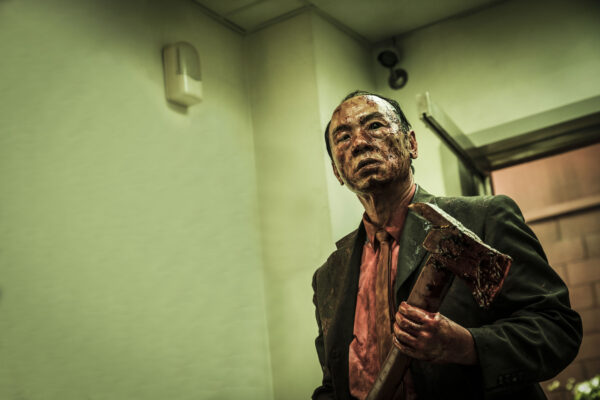
Kelly McNeely: Are you drawn to extreme horror in particular? And if so, what draws you to it? Is it a genre or subgenre that you’d want to keep working in?
Rob Jabbaz: Well, what do we mean by extreme horror? Like, let’s define that.
Kelly McNeely: Extreme horror, to me — I mean, The Sadness is kind of a very, very different movie, in terms of like, what exactly it is — but in terms of extreme horror, to me that’s anything that’s really dark, really visceral, really violent, like hyper, ultra-violent. You look at like A Serbian Film, Trauma, Baskin, Atroz…
Rob Jabbaz: Ah right, yes
Kelly McNeely: Those are kind of categorized as extreme horror films. And The Sadness, I feel like it’s kind of an extreme horror adjacent. So I’m curious, is that a subgenre that you’re drawn to? Was that something that you took into consideration, like, I want to make this kind of movie? Or how did that all kind of fall into place for you?
Rob Jabbaz: I mean, I’ve seen all the movies that you mentioned, I just watch everything. And I guess it’s just sort of like the right tool for the right project. Like, I remember having this argument on the side of the road with this German guy about how I thought World War Z sucked, because it’s not really a horror movie. It’s about zombies, but it’s like the first zombie movie that’s not a horror movie. And he’s telling me that it’s actually the best zombie movie that he’s ever seen. And I’m like, but where is the sensational aspect of like, your friends and your and your neighbors and your countrymen are dead and rotting, and they smell, and they’re falling apart and it’s disgusting.
It’s the most vile, putrid experience ever. And it’s absolutely horrifying. But more so than horrifying, it’s revolting, and you want to throw up constantly. If we’re going zombie — like true zombies, not like rage virus or mutant or whatever, or The Sadness — and it’s just like dead people coming back to life, like, I think that by sanitizing it that way and just making it just big hordes of people running at you, it’s not gory and it’s not really about rot, and about the the body breaking down and if it’s not about those things, then it’s like, it doesn’t even have to be a zombie movie. Like, why even bother? What’s the point of any of this? I don’t get it.
And so with The Sadness, I felt like in order to get the point across, but the point is cruelty, the point is how malice makes the difference. That’s what’s scary. That’s why this movie is scary and why — if you’d like to be scared — then that’s why you should go see this movie. It needed to have graphic violence, it needed to have extreme graphic violence, and also it needed to be framed in a realistic way. Mostly. There is one part in the film where I kind of intentionally went over the top, because I wanted to — I don’t even know if it worked — but like, I just wanted to kind of wink at the audience and just could be kind of like, it’s okay if you like this. You know? It’s okay if you’re happy about what’s happening right now. And I’m wondering if you know which part I’m talking about, the part where it just kind of goes a little over the top.
Kelly McNeely: There’s the two parts that I’m thinking of, there’s the one part with the bone saw. And the other part that really spoke to me was the guys with the baseball bats.
Rob Jabbaz: Those parts are cool. I especially like the bone saw part. That for me is just about making a big mess. And that kind of, I think, speaks to a certain fetish. Like if you go to like a porn site and there’s a whole subsection of like, spaghetti and meatballs on a girl’s tits or stuff like that, you know what I mean? Like that, the same neurons are firing with both of those things.
But in any case, the part I’m actually talking about is the part on the subway when the guy stabbed the guy in the neck and he pulls the thing out in the blood sprays up. And it’s just way more blood than should be possible. Right? And that, to me is like the one moment of like, hyperreality. I took a cue from Fede Alvarez, from the Evil Dead remake from 2013, the part where the girl cuts off her arm with the electric knife. There’s just way too much blood, but it’s framed as serious. And I was like, this is great, because you’re with your square friends in the theater, and they’re bugging out about it. But this is a secret code between you and the director, you know that he intends this to be for fun. So that’s kind of what I wanted to do. I like that intimate thing that he did there. I do believe that was intentional. Maybe it wasn’t, I don’t know. But I’d like to believe that it was an intentional thing to speak to horror lovers and horror fans, you know?
So to go back to your original question, it was about the right tool for the right project. This film was about cruelty and the tone was really important. I’ve mentioned tone before, about like with the Evil Dead thing, the original Evil Dead has kind of like a wink wink thing to it, and what Fede Alvarez did was he kind of stripped away all that comedy, and he just tried to make it a little more serious. And some people don’t like that, I think it was a good idea. And that’s kind of what I tried to do with The Sadness, except I was thinking more along the lines of like, Hong Kong exploitation cinema. Like, one of my favorites is Ebola Syndrome. Have you ever seen that?
Kelly McNeely: I have not, no.
Rob Jabbaz: As soon as you get off the horn with me, watch it. It’s on YouTube, I think. I think you can just watch it for free. But you’ll notice this about a lot of the Category III Hong Kong movies is that there’s sort of this weird, like, sort of lowbrow comedy, like childish comedy, throughout all of it, permeating all of it. And it’s almost this weird tone directly from the director saying, all of this is just a joke, or like, none of this has to be taken seriously. But not in the sense of you shouldn’t take this seriously, more just kind of like, you shouldn’t take these things seriously in life. Like the rape of a woman is a joke, the murder of a child is a joke, that’s what it feels like. I saw Ebola Syndrome when it premiered at Fantasia Fest, when I was a teen. And I’ve never felt actually in danger in a movie theater before, where I felt like, I don’t know if I’m ready for what this is going to show me. It felt like, this movie is from a different country, they have different standards, they might show me something that I’m not ready to see. And they kind of do [laughs].
But in any case, I kind of thought it would be cool to do a film like that, except really make it serious, like zero humor. Maybe a couple of little things here and there, but they’re not jokes, they’re just kind of little things that are ironic or whatever. But in any case, yeah, looking at Hong Kong exploitation movies, and then just kind of being like, this is cool. But let’s remove the comedy and see what happens.
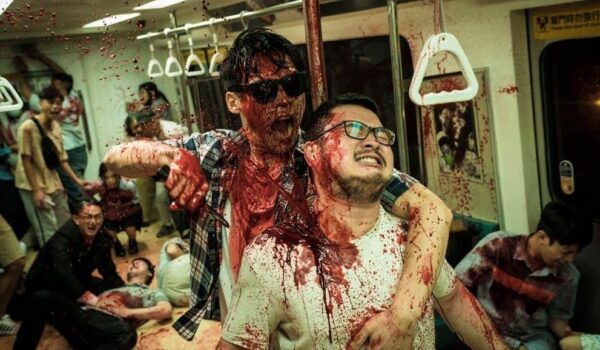
Kelly McNeely: And I think it works so well having it set in Taiwan, because I feel like you could not get away with making this sort of thing here, for example. Like that’s not the kind of Canadian horror that we come up with.
Rob Jabbaz: Well let me sort of address that, because they don’t make movies like this in Taiwan, this is the only one like it. And I had to push very, very hard and I had to summon a lot of willpower to get it through. Not in terms of getting it through the studio or the investors, it was mostly just like day to day on set. Like, look, you read the script, you looked at the storyboards, this is the day we’re doing this. Don’t make me be an asshole and say you have to take off all your clothes, because that’s what it says in the script.
We would have days where it was like a war, it was like a fight, just trying to get people to do what they had already agreed to do. I guess they figured they could just sign on and then when the time came, they just would be able to get out of it or something. So it required me to kind of be a little bit of a bully sometimes. But I mean, you have to use what you got, you know. At the end of the day, your name is on the film.
Let me just make a quick caveat and say that the entire cast I loved, they gave everything that they had to me, and I would work with any of them again in a second. Any of the cast. And same thing with the tech cast, like the electricians, gaffers, lighting, camera people. If I make a movie again, which I really hope I can do, I don’t think I’ll ever want to use a different cinematographer than Jie-Li Bai, who was my cinematographer. There was very good communication there.
So yeah, I mean, it was just a few bad apples. But most of the people who were on the team were phenomenal. And I think a lot of them as well were just waiting to do something like this, you know. Like, oh, we shoot bullshit, such bullshit, so many stupid music videos for ballads, so finally, we can do something that’s just really, really over the top and really getting into some deep, deep, deep emotions and fiery crazy weird stuff. That’s what I really felt from some people, like some of them, it felt like they’ve been waiting their whole careers to do something like this. And it shows too, and I think you can probably tell which cast members you can see that in.
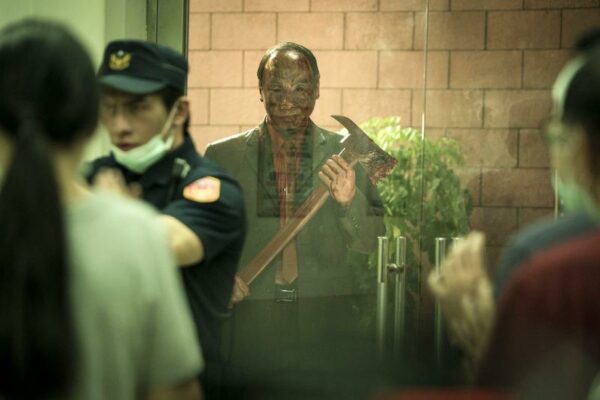
Kelly McNeely: And the cinematography is gorgeous. I remember when I was watching, it was like, this is the best looking extreme horror I’ve seen in a long time. But I guess this kind of segues into my next question, but I don’t know if you can answer this. How much blood was used for the film? Because I feel like I must have set some kind of record.
Rob Jabbaz: No, I don’t, I made a point of just telling Esther and Victor — the couple who make up IF SFX Art Maker, which is the makeup effects studio that did our special effects — I just made a point of just saying like, we cannot run out of blood, we’re not running out of blood. Like I’m going to say this to you guys right now, you need to understand this, we need to always have enough blood, and like, I’m going to be so angry if one day you have to come up and tell me that we don’t have enough. So once that was made clear, it was just always there. And also the art department made two kinds of blood. We had hero blood that reacted a little bit more realistically, and then we just had a more staged kind of blood which is provided by the art department that was more used for like set dressing and stuff like that.
Ditto for guts, we had the art department make viscera and guts out of polyurethane, and then we had the makeup people make hero guts out of silicone. So that was just something that I needed to make sure we had. When we had our gore days, I didn’t want to be limited. We need these scenes to deliver. Because I’m not trying to impress the Taiwanese audience, I’m trying to impress the global audience. I need these to be world class. So that was kind of where I was coming from.
I gotta tell you that like, I’m very dear friends with Victor and Esther. It sounds like I’m bullying them. But, you know, they come to my house for dinner all the time and stuff. I’m just kind of trying to pretend to be a tough guy right now. But to be honest, they got the picture and they did a great job. And I love them both.
Kelly McNeely: They did an amazing job, it looks fantastic. Cat as a character is the kind of female character that you love to see, because she just was like, fuck politeness. She’s not the shrinking violet that’s trying to avoid confrontation. She’s like, nope, get the fuck away from me, we’re not doing this. Can you talk a little bit about the creation of that character?
Rob Jabbaz: I know you’re talking about the subway scene. I guess I kind of have like a bit of a feminist kind of perspective in some ways. We auditioned like a lot of girls for that part. And I got them to kind of improvise, and a thing that they always would bring up — or a line that they would always go to in their improvisation — was like, leave me alone, I have a boyfriend. And I was just like, no, don’t don’t say that, because basically what you’re saying is that I’m someone else’s property. And they’ll also be like, why wouldn’t I just get up and leave? Because that’s your seat, you know, fuck this guy. You’re not going to move just because this guy’s being a little bitch like that, you need to be stronger. You need to kind of see through him and see the sadness in there. You know?
I guess I mean, where does it come from? I have two little sisters and I guess I’m just kind of writing what I hope that they would say, if they were confronted in that situation, right? Because I always do that. I’ll watch a pickup artist’s video. And I’ll be like, okay, so, Kelly, if anyone tries to say this to you, he’s trying to do this, okay? He thinks he’s gonna get you with that. So you gotta do it this way. I guess it’s like hoes before bros when it comes to my sisters. I think that’s pretty much it. I guess I have a good close relationship with my sisters. And for whatever reason, I guess I just grew up in a house as a big brother. I didn’t really run into any big problems or anything. It’s not like I had to beat up dudes all the time because of my sisters. I just have a certain level of sensitivity for that or something, when I tried to write that scene.
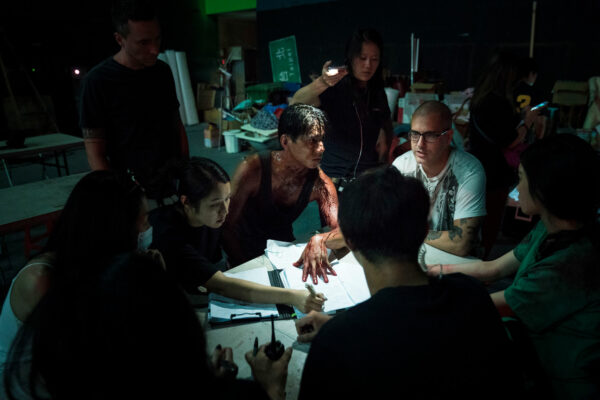
Kelly McNeely: How was the challenge of not working in your mother language, as far as working in Taiwan and making this film with this cast in this crew?
Rob Jabbaz: There’s a lot of blindness, because someone will be delivering lines, and I can understand Chinese. I can speak it. But it’s definitely not something that I feel as comfortable doing compared to English. And it’s way different.
So remember that movie Raw? Yeah. So like, I love Raw. And I love that director. And I’m very excited to see her new movie. When I first saw Raw, I was like, oh my god, this is Mozart level. Like, that’s what I thought, right? Like, this is some savant, this is in her in her blood. Like Lil Wayne, you know, someone who’s just really good at what they do naturally. And then much later, I talked to my friend who’s from Paris, and he’s like, I can see why you would like it so much, but it’s not actually as good if you speak French. And I was just like, really? Oh… that’s weird. But it helped me to understand what was going on when I was doing The Sadness.
Like you have a person in front of you — have a couple people in front of you — and they’re delivering lines. And they’re acting and you’re feeling kind of like, this is good, I’m feeling the right feelings. I wrote this all, and that feels right. And then like, you look over at someone else and they’re like, hmmm nah [shakes head], and you’re like… well why though? And they’re like, well, because she said it kind of like this. And you’re like, I don’t get it at all. And I was just like, fuck, this is frustrating because there’s a disconnect happening, it’s like filters in front of my eyes, like I can’t see certain things.
So I had a dialogue editor I just said, okay, I’m going to just go all in on this, and I’m just going to try to direct it to the best of my ability. For me to kind of blindly try to direct a movie for an audience that I don’t even understand? You know, like, who am I making this for, and I making this for myself, or am I making it for the hypothetical person who can understand this properly? I’m just gonna make it so it feels good for myself. What I’m going to do is just bet on the action. I just hope that people who speak Mandarin Chinese are gonna be able to watch this and just kind of watch it with their heart and just try to get what I’m trying to get across here.
If the language is all weird, then maybe it’ll be kind of like a Claudio Fragasso movie or something. Like Troll 2, you know what I mean? Like, where the English is all weird and stupid. Like that, but with good gore effects and good music and good cinematography. I mean, if I had seen a movie like that, like a Claudio Fragasso movie that actually was very competently made, then I think I would be in love with it. So I hope that would be how Taiwanese people feel about it.
And then on the other hand, it looks good to me, so I hope that when people see it around the world that don’t speak Mandarin Chinese, that’s just sort of another element. Like there’s sort of an inherent exoticness to it. And inherent outside looking in. With the subtitles, just like, I don’t understand this language, but I’m reading it and that’s actually a whole different cinema experience. So I just thought of it entirely from the perspective of a foreigner. Like, how is someone who doesn’t speak Chinese going to respond to this, accept this, or perceive this? And that really is what I was banking on, I expected The Sadness to kind of do well, outside of Taiwan, more so than inside of Taiwan. And so far, all of these predictions are all totally coming true.
You can read my full review of The Sadness here, and keep an eye out for it on the festival circuit.
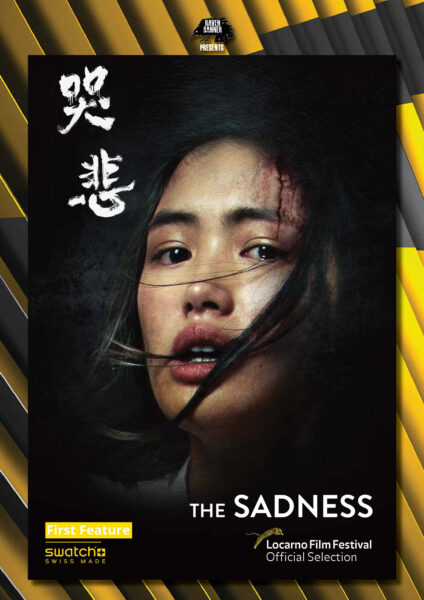
Listen to the 'Eye On Horror Podcast'
Editorial
Yay or Nay: What’s Good and Bad in Horror This Week
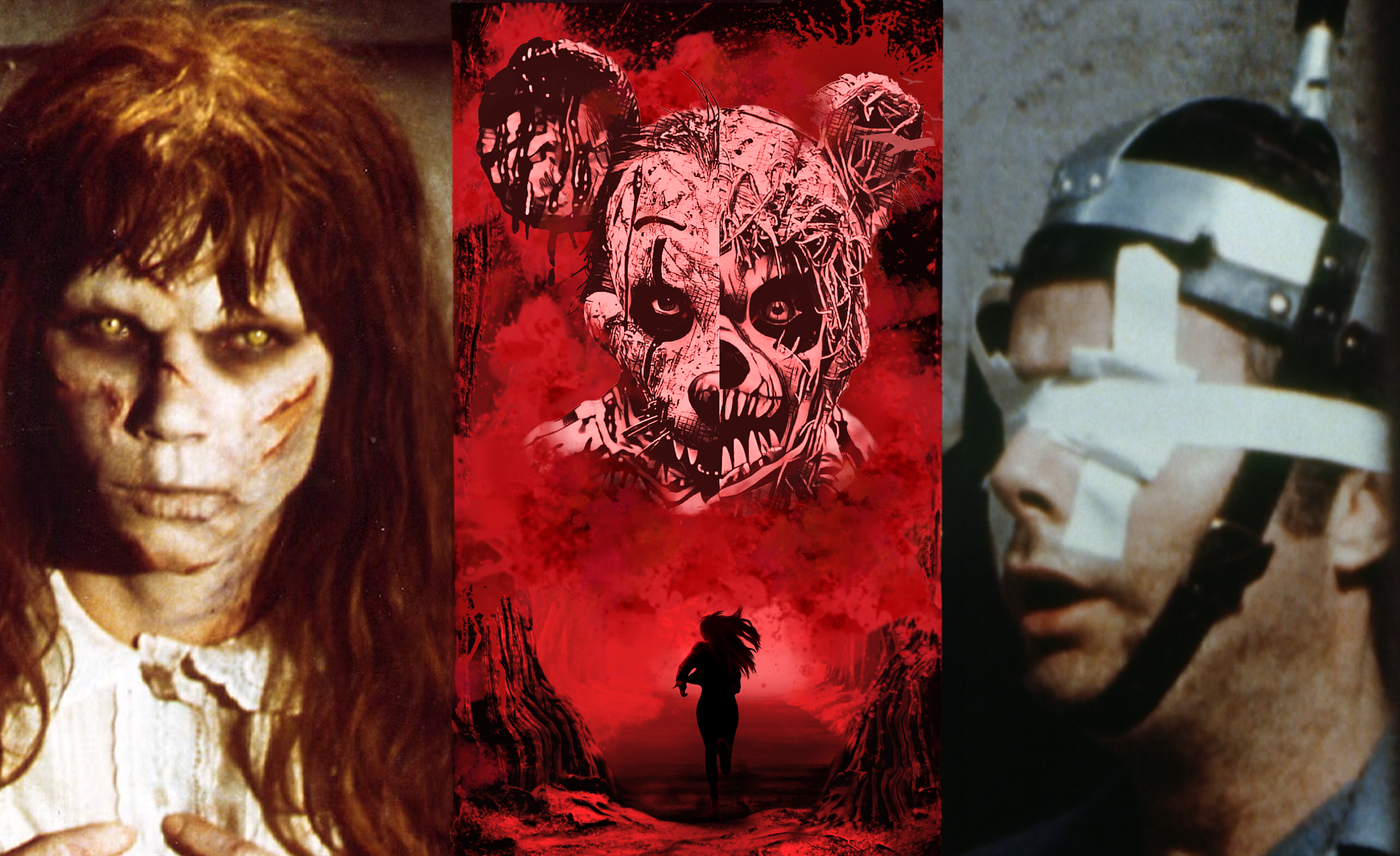
Welcome to Yay or Nay a weekly mini post about what I think is good and bad news in the horror community written in bite-sized chunks.
Yay:
Mike Flanagan talking about directing the next chapter in the Exorcist trilogy. That might mean he saw the last one and realized there were two left and if he does anything well it’s draw out a story.
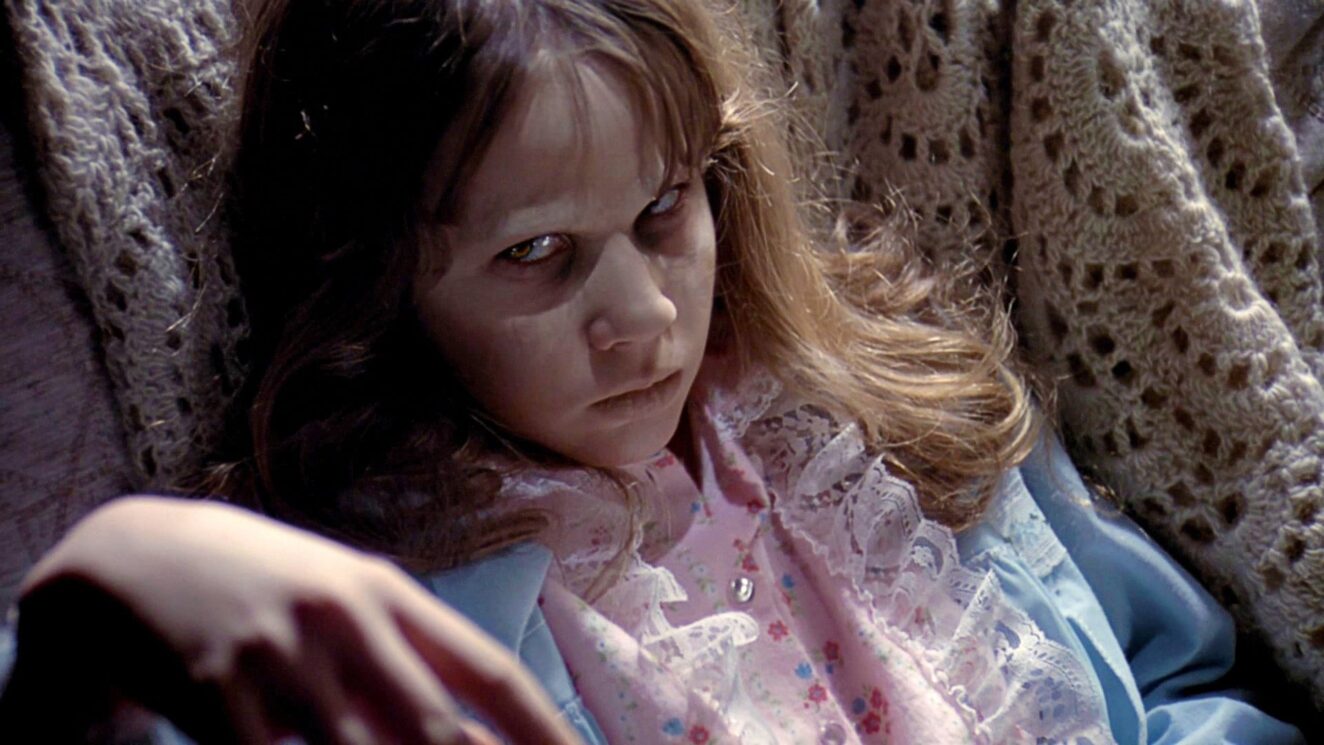
Yay:
To the announcement of a new IP-based film Mickey Vs Winnie. It’s fun to read comical hot takes from people who haven’t even seen the movie yet.
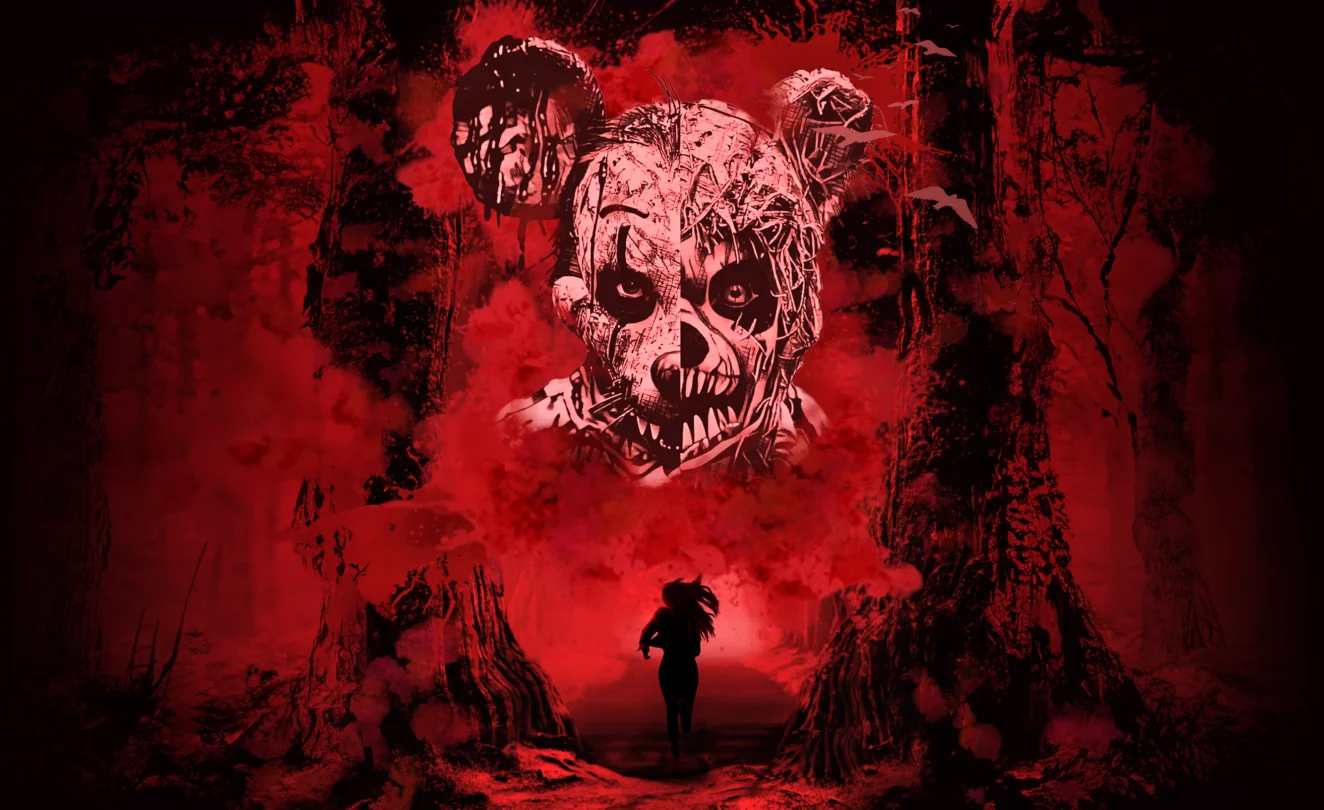
Nay:
The new Faces of Death reboot gets an R rating. It’s not really fair — Gen-Z should get an unrated version like past generations so they can question their mortality the same as the rest of us did.
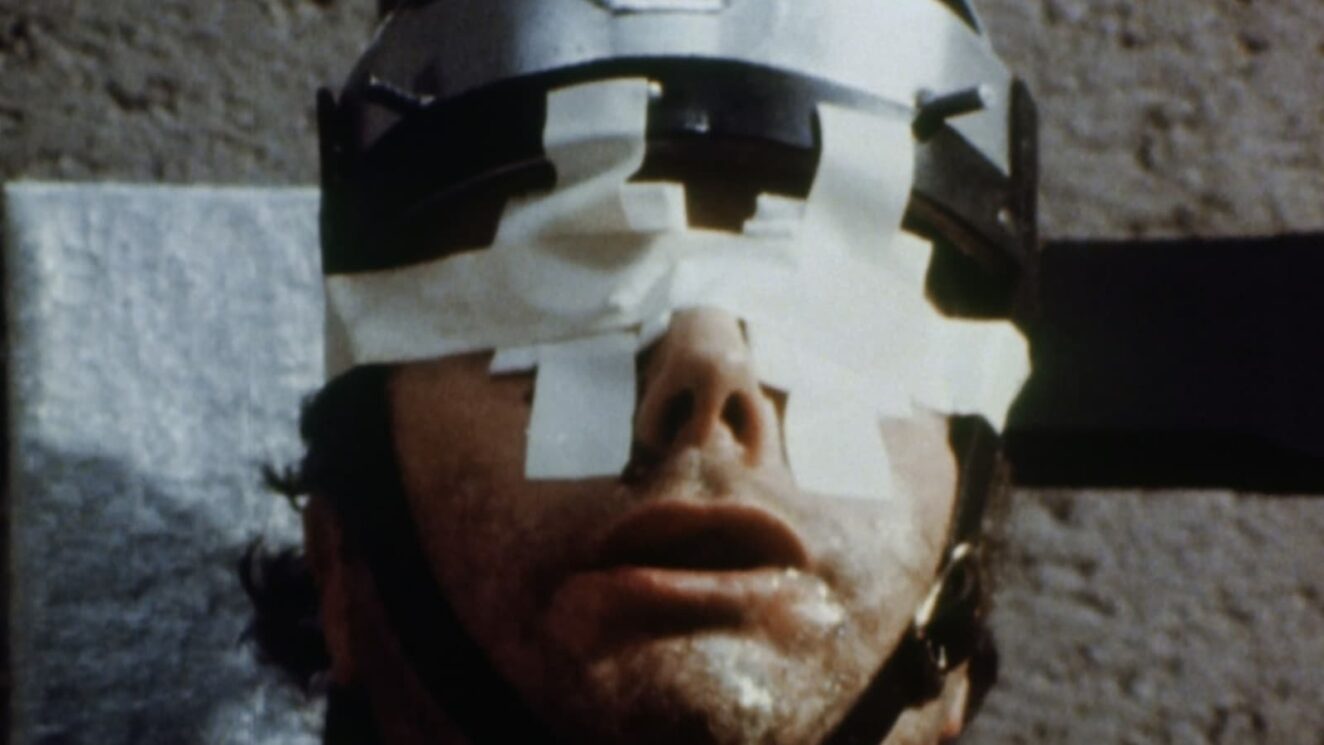
Yay:
Russell Crowe is doing another possession movie. He’s quickly becoming another Nic Cage by saying yes to every script, bringing the magic back to B-movies, and more money into VOD.
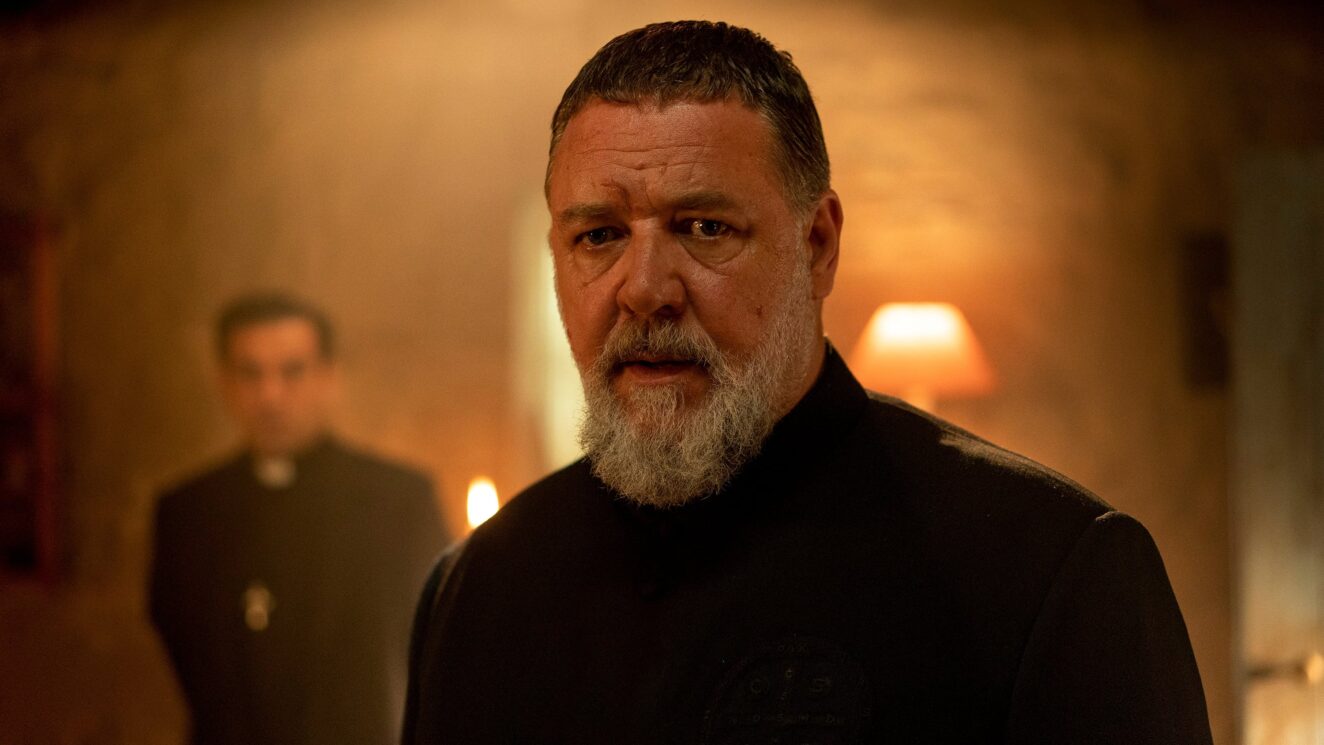
Nay:
Putting The Crow back in theaters for its 30th anniversary. Re-releasing classic movies at the cinema to celebrate a milestone is perfectly fine, but doing so when the lead actor in that film was killed on set due to neglect is a cash grab of the worst kind.
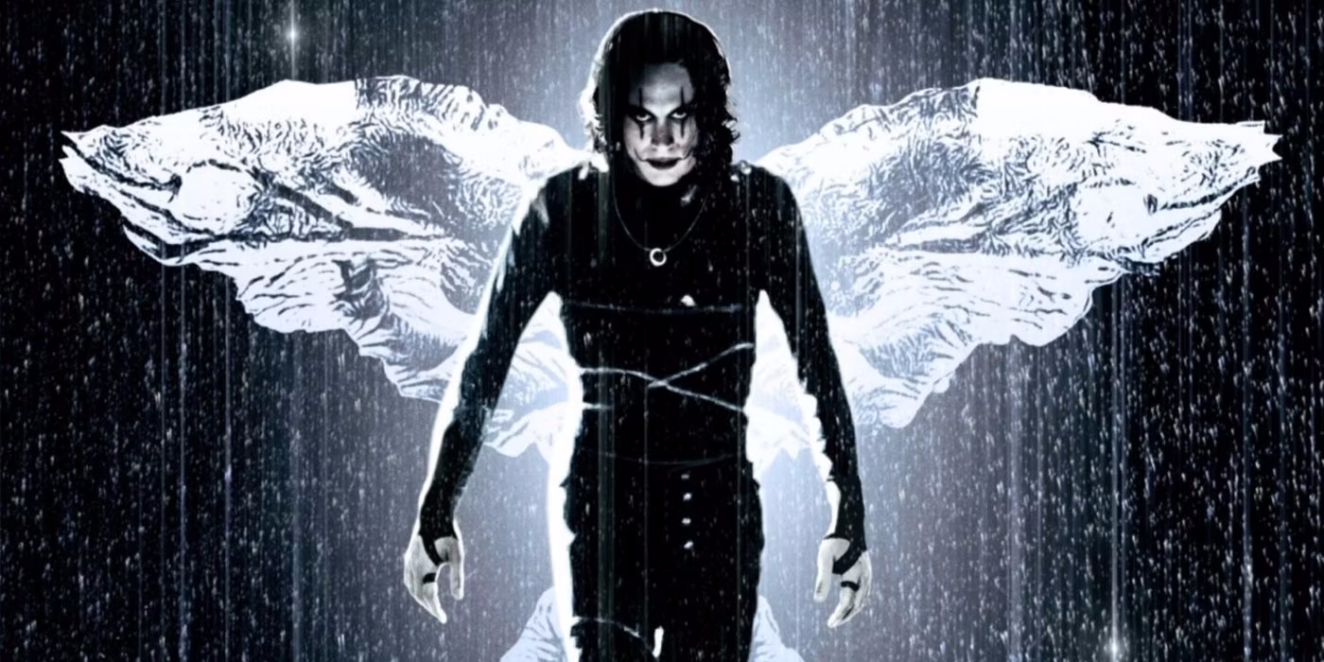
Listen to the 'Eye On Horror Podcast'
Lists
The Top-Searched Free Horror/Action Movies on Tubi This Week
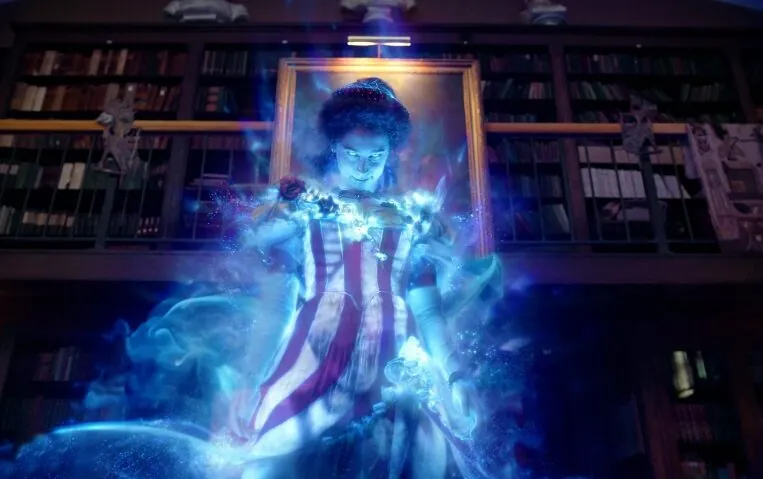
The free streaming service Tubi is a great place to scroll when you’re unsure what to watch. They are not sponsored or affiliated with iHorror. Still, we really appreciate their library because it’s so robust and has many obscure horror movies so rare you can’t find them anywhere in the wild except, if you’re lucky, in a moist cardboard box at a yard sale. Other than Tubi, where else are you going to find Nightwish (1990), Spookies (1986), or The Power (1984)?
We take a look at the most searched horror titles on the platform this week, hopefully, to save you some time in your endeavor to find something free to watch on Tubi.
Interestingly at the top of the list is one of the most polarizing sequels ever made, the female-led Ghostbusters reboot from 2016. Perhaps viewers have seen the latest sequel Frozen Empire and are curious about this franchise anomaly. They will be happy to know it’s not as bad as some think and is genuinely funny in spots.
So take a look at the list below and tell us if you are interested in any of them this weekend.
1. Ghostbusters (2016)
An otherworldly invasion of New York City assembles a pair of proton-packed paranormal enthusiasts, a nuclear engineer and a subway worker for battle.An otherworldly invasion of New York City assembles a pair of proton-packed paranormal enthusiasts, a nuclear engineer and a subway worker for battle.
2. Rampage
When a group of animals becomes vicious after a genetic experiment goes awry, a primatologist must find an antidote to avert a global catastrophe.
3. The Conjuring The Devil Made Me Do It
Paranormal investigators Ed and Lorraine Warren uncover an occult conspiracy as they help a defendant argue that a demon forced him to commit murder.
4. Terrifier 2
After being resurrected by a sinister entity, Art the Clown returns to Miles County, where his next victims, a teenage girl and her brother, await.
5. Don’t Breathe
A group of teens breaks into a blind man’s home, thinking they’ll get away with the perfect crime but get more than they bargained for once inside.
6. The Conjuring 2
In one of their most terrifying paranormal investigations, Lorraine and Ed Warren help a single mother of four in a house plagued by sinister spirits.
7. Child’s Play (1988)
A dying serial killer uses voodoo to transfer his soul into a Chucky doll which winds up in the hands of a boy who may be the doll’s next victim.
8. Jeepers Creepers 2
When their bus breaks down on a deserted road, a team of high school athletes discovers an opponent they cannot defeat and may not survive.
9. Jeepers Creepers
After making a horrific discovery in the basement of an old church, a pair of siblings find themselves the chosen prey of an indestructible force.
Listen to the 'Eye On Horror Podcast'
Movie Reviews
Panic Fest 2024 Review: ‘Haunted Ulster Live’
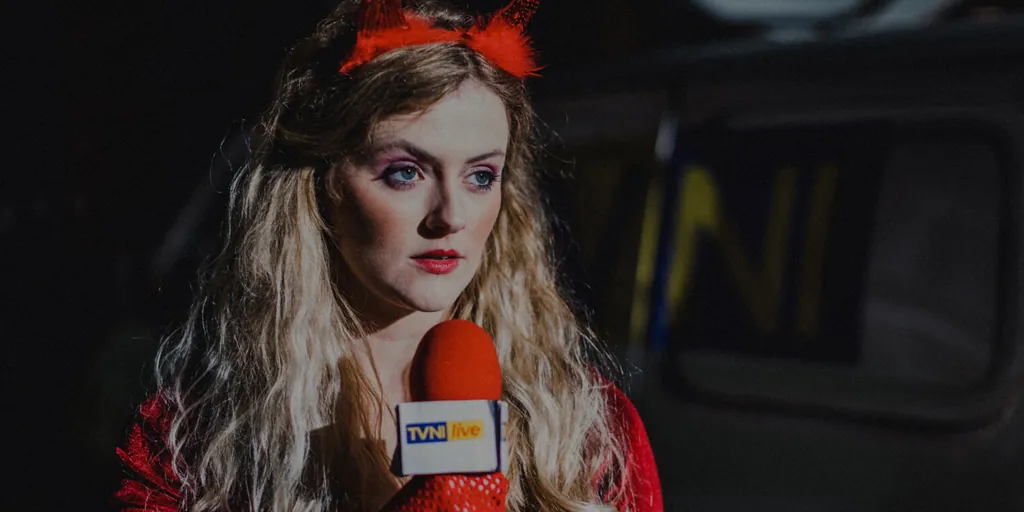
Everything old is new again.
On Halloween 1998, the local news of Northern Ireland decide to do a special live report from an allegedly haunted house in Belfast. Hosted by local personality Gerry Burns (Mark Claney) and popular children’s presenter Michelle Kelly (Aimee Richardson) they intend to look at the supernatural forces disturbing the current family living there. With legends and folklore abound, is there an actual spirit curse in the building or something far more insidious at work?
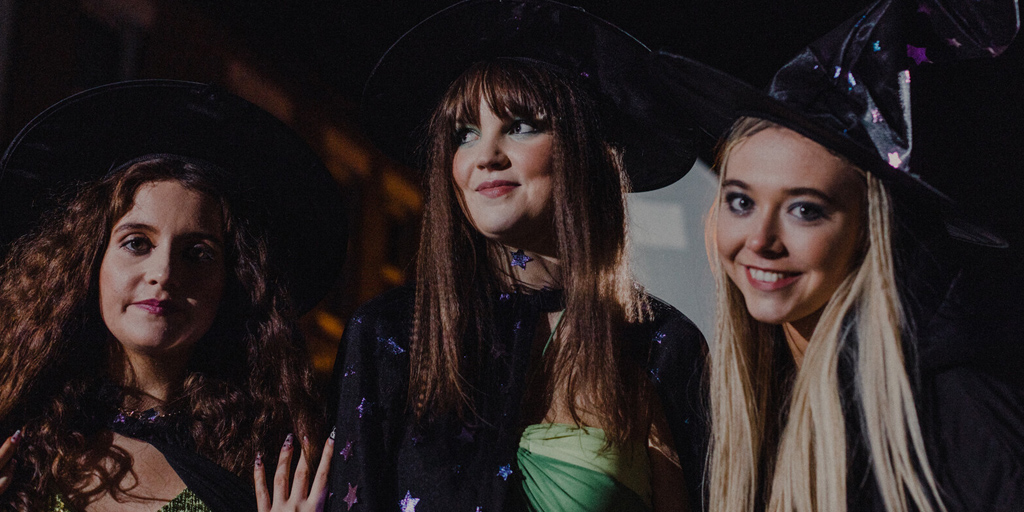
Presented as a series of found footage from a long forgotten broadcast, Haunted Ulster Live follows similar formats and premises as Ghostwatch and The WNUF Halloween Special with a news crew investigating the supernatural for big ratings only to get in over their heads. And while the plot has certainly been done before, director Dominic O’Neill’s 90’s set tale of local access horror manages to stand out on its own ghastly feet. The dynamic between Gerry and Michelle is most prominent, with him being an experienced broadcaster who thinks this production is beneath him and Michelle being fresh blood who is considerably annoyed at being presented as costumed eye candy. This builds as the events within and around the domicile becomes too much to ignore as anything less than the real deal.
The cast of characters is rounded out by the McKillen family who have been dealing with the haunting for some time and how it’s had an effect on them. Experts are brought in to help explain the situation including the paranormal investigator Robert (Dave Fleming) and the psychic Sarah (Antoinette Morelli) who bring their own perspectives and angles to the haunting. A long and colorful history is established about the house, with Robert discussing how it used to be the site of an ancient ceremonial stone, the center of leylines, and how it was possibly possessed by the ghost of a former owner named Mr. Newell. And local legends abound about a nefarious spirit named Blackfoot Jack that would leave trails of dark footprints in his wake. It’s a fun twist having multiple potential explanations for the site’s strange occurrences instead of one end-all be-all source. Especially as the events unfold and the investigators try to discover the truth.
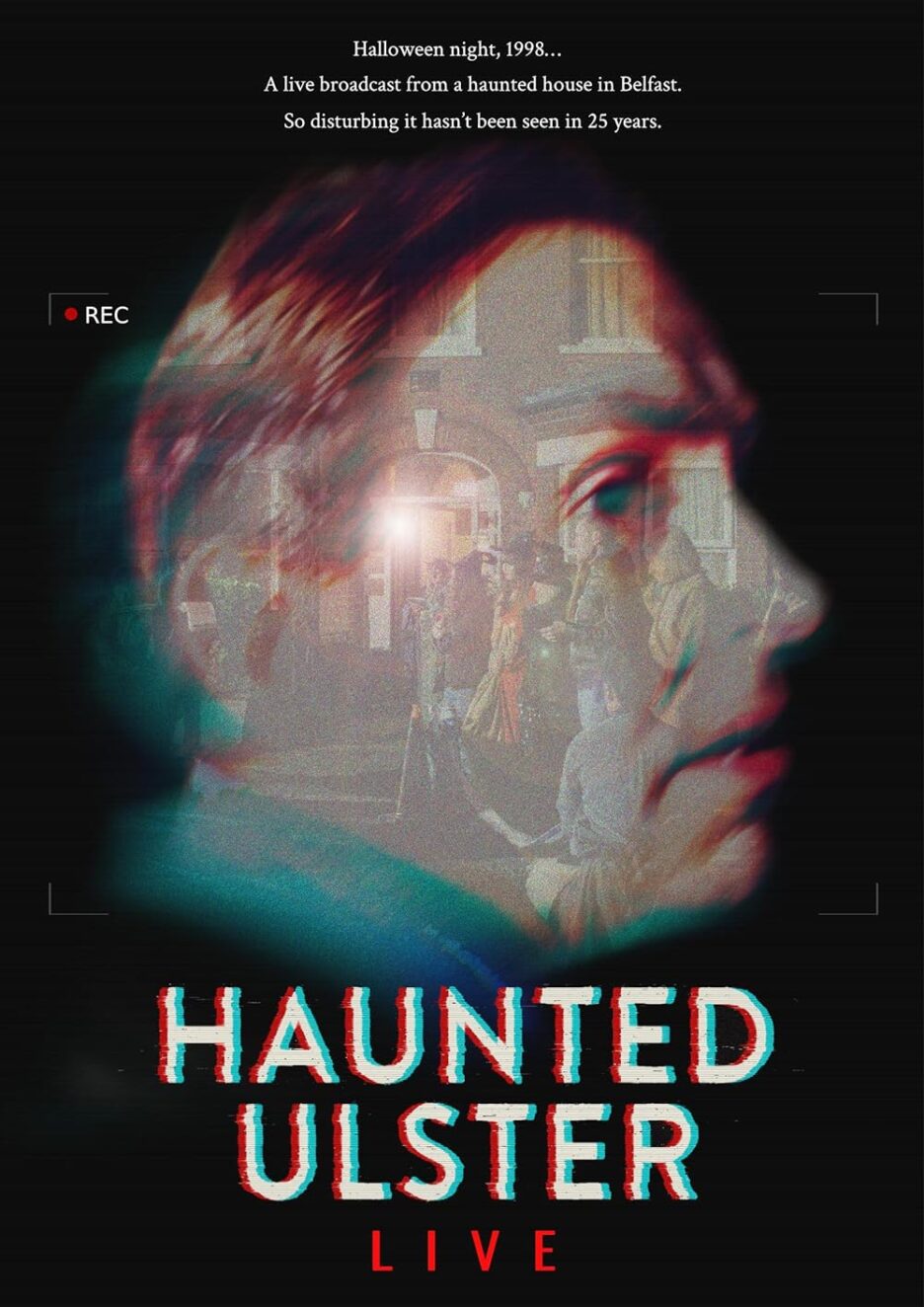
At its 79 minute timelength, and the encompassing broadcast, it’s a bit of a slow burn as the characters and lore is established. Between some news interruptions and behind the scenes footage, the action is mostly focused on Gerry and Michelle and the build up to their actual encounters with forces beyond their comprehension. I will give kudos that it went places I didn’t expect, leading to a surprisingly poignant and spiritually horrifying third act.
So, while Haunted Ulster Live isn’t exactly trendsetting, it definitely follows in the footsteps of similar found footage and broadcast horror films to walk its own path. Making for an entertaining and compact piece of mockumentary. If you’re a fan of the sub-genres, Haunted Ulster Live is well worth a watch.

Listen to the 'Eye On Horror Podcast'
-
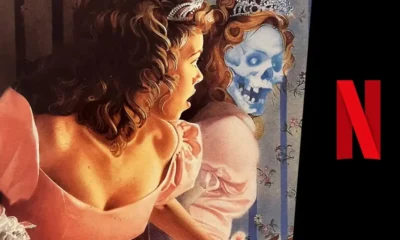
 News5 days ago
News5 days agoNetflix Releases First BTS ‘Fear Street: Prom Queen’ Footage
-
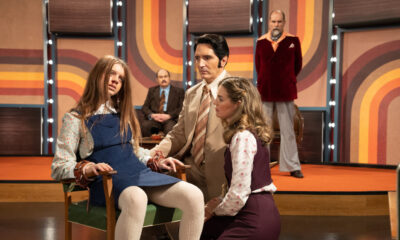
 Movies6 days ago
Movies6 days ago‘Late Night With the Devil’ Brings The Fire to Streaming
-

 News4 days ago
News4 days ago“Mickey Vs. Winnie”: Iconic Childhood Characters Collide In A Terrifying Versus Slasher
-
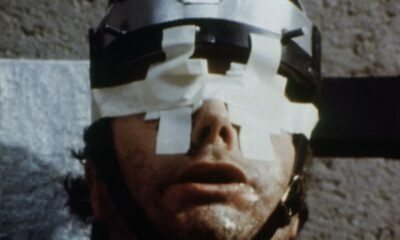
 News3 days ago
News3 days agoNew ‘Faces of Death’ Remake Will Be Rated R For “Strong Bloody Violence and Gore”
-
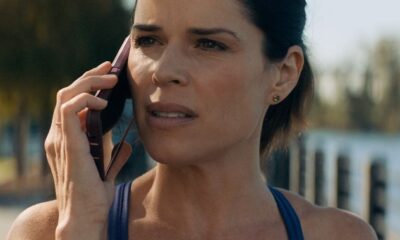
 Movies6 days ago
Movies6 days agoWill ‘Scream VII’ Focus on The Prescott Family, Kids?
-
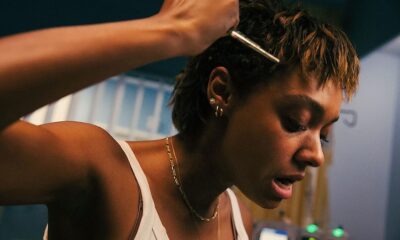
 News5 days ago
News5 days ago‘Talk To Me’ Directors Danny & Michael Philippou Reteam With A24 for ‘Bring Her Back’
-
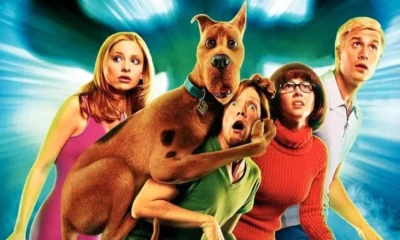
 News5 days ago
News5 days agoLive Action Scooby-Doo Reboot Series In Works at Netflix
-
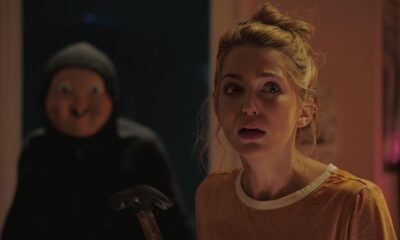
 News6 days ago
News6 days ago‘Happy Death Day 3’ Only Needs Greenlight From Studio
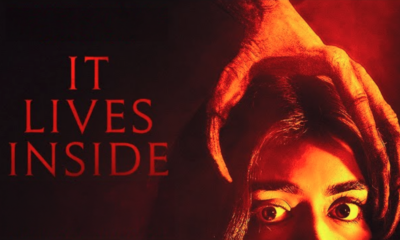

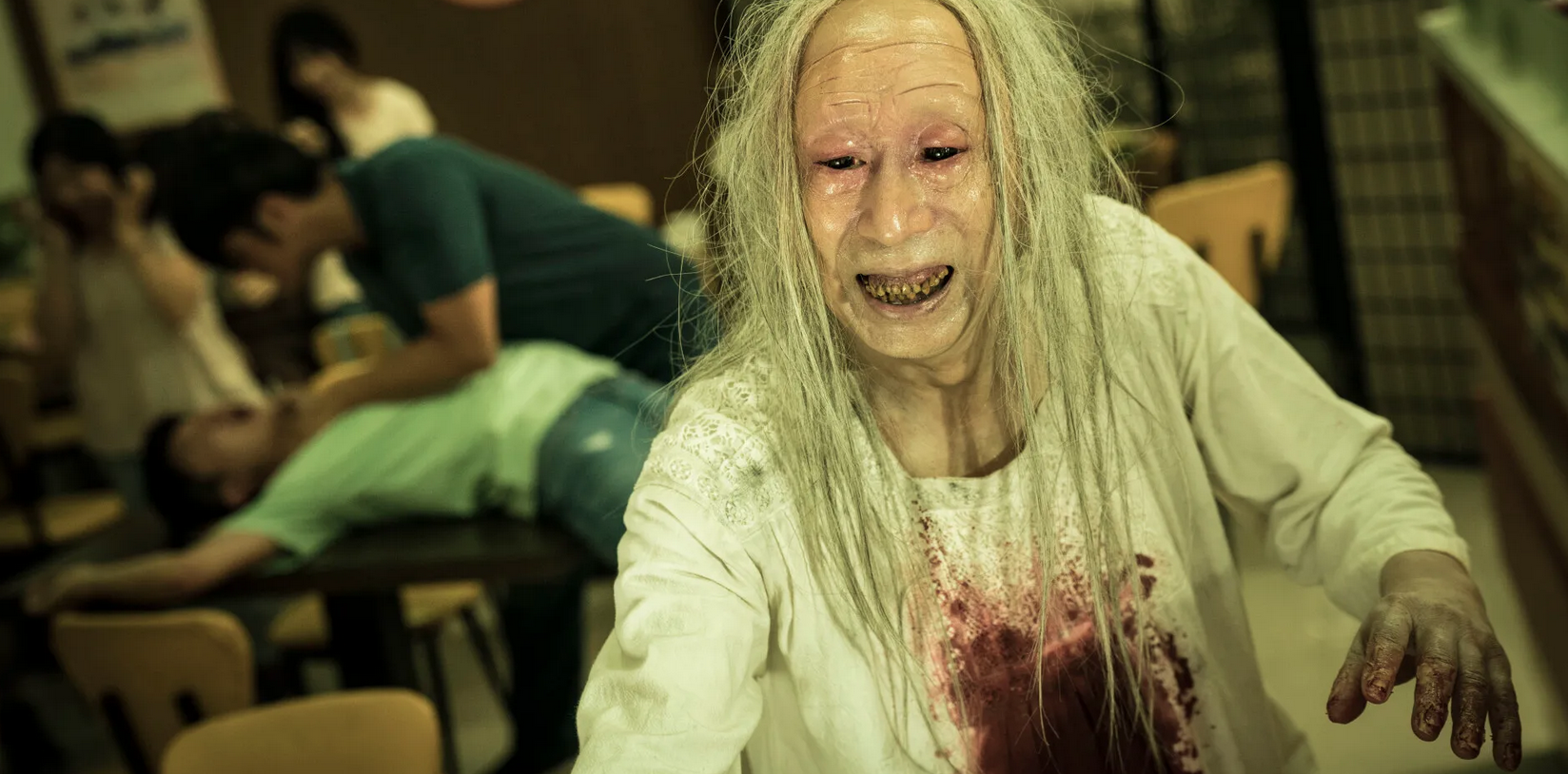
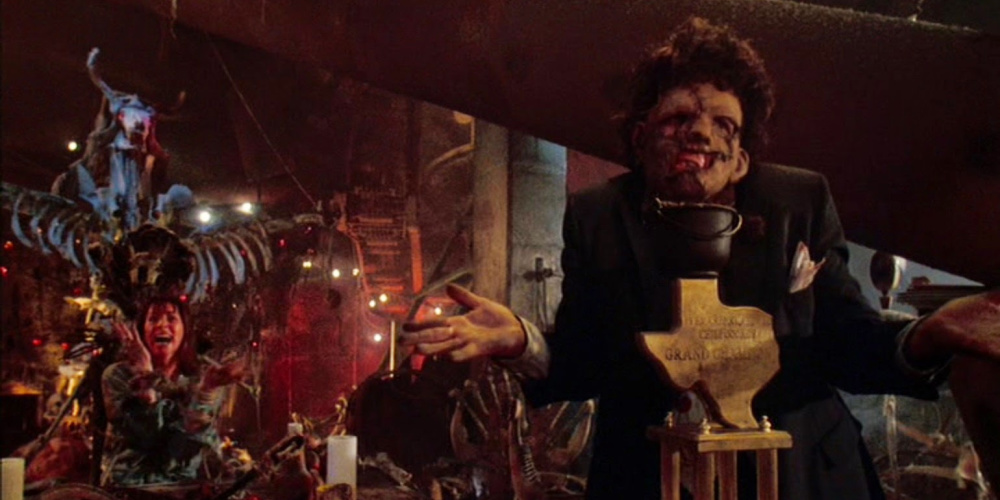

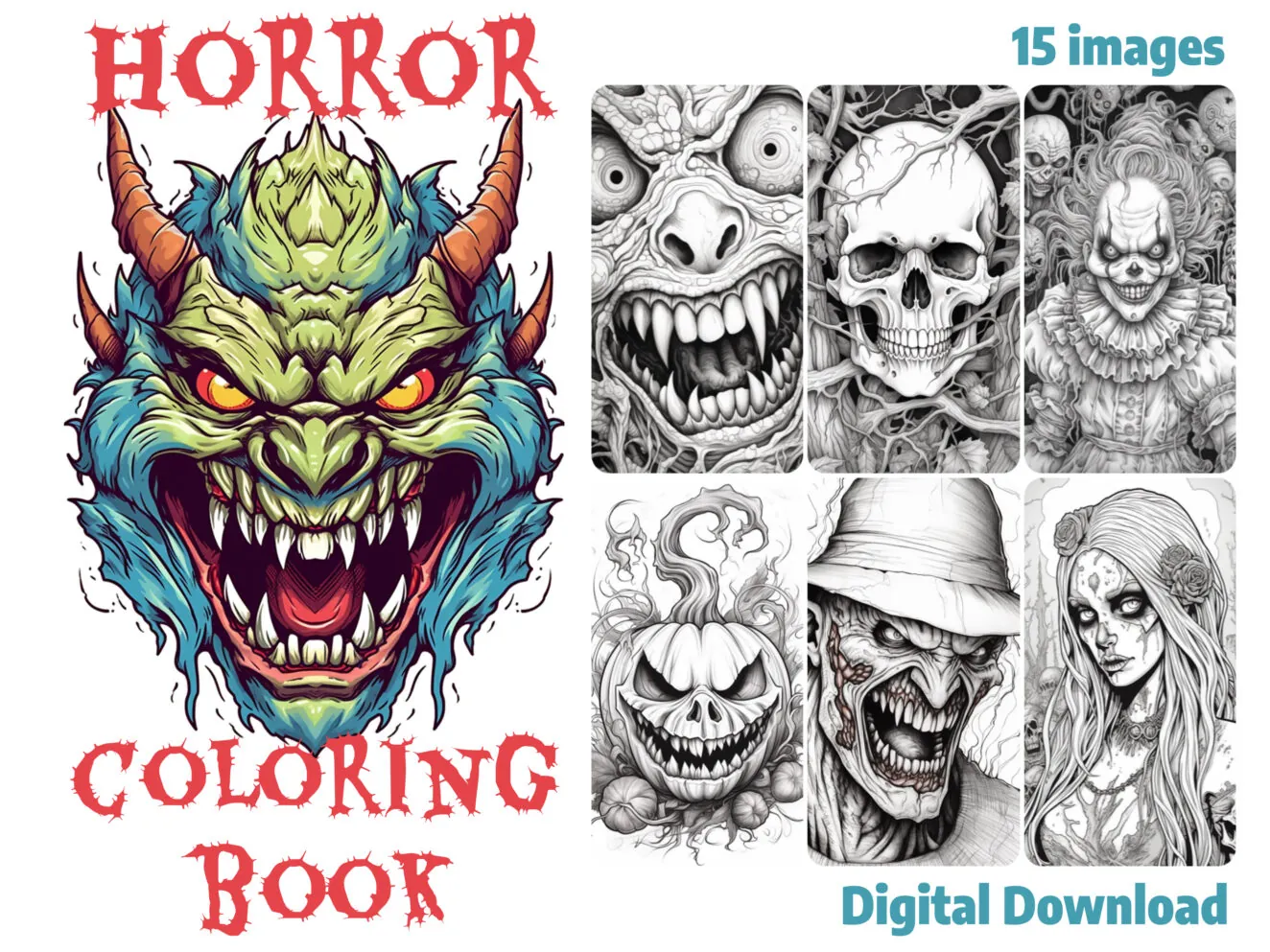
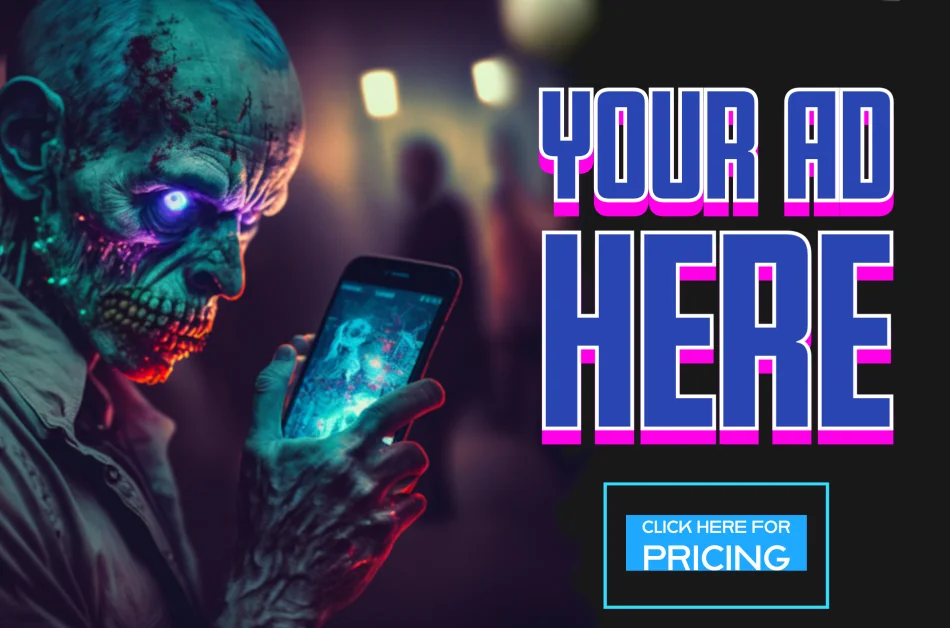















You must be logged in to post a comment Login